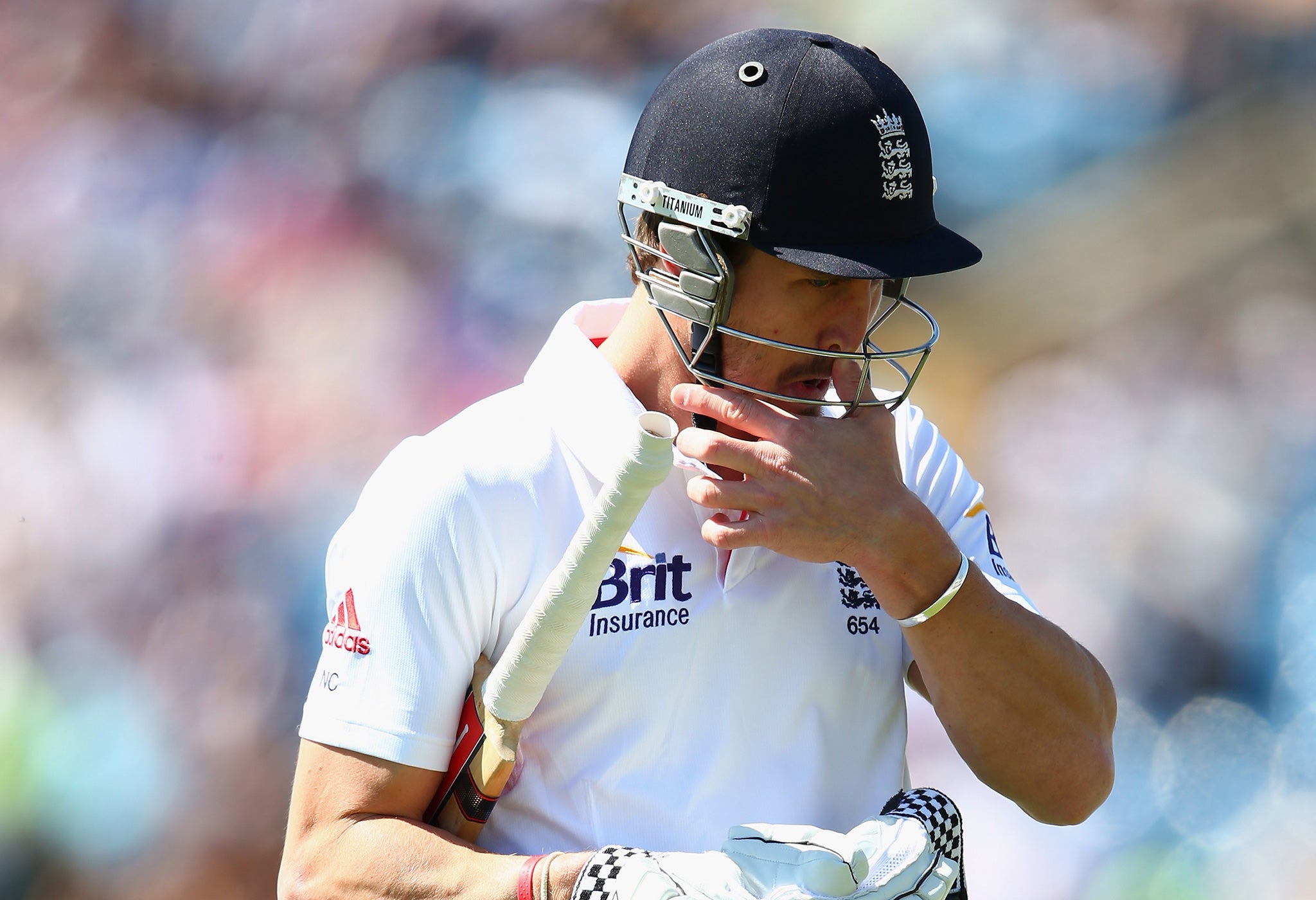Ashes 2015: Back to Nick Compton is the answer to England's opening batsman dilemma
Since being ousted as a risk-averse plodder, it turns out that is just the type of cricketer required in this era of aggressive run accumulation

Twice in my house-buying career I have returned to a property earlier dismissed. What did not feel like the right choice on first viewing proved exactly that when compared with alternatives on the market.
For houses in my case read opening batsmen in England. The structure of this England side needs addressing, with an opening partner for skipper Alastair Cook an obvious priority. And for selections dismissed as unsuitable that might just be a decent fit now, read Nick Compton.
Since being ousted as a risk-averse plodder, it turns out that is just the type of cricketer required in this era of aggressive run accumulation. If Alex Hales is not to be trusted, as appears to be the case, then Compton is worth a second look, even though he has struggled in the latter part of the summer to put compelling scores on the board for Middlesex.
Compton felt poorly treated by the Andy Flower regime, perplexed by a coach too ready to pick apart a player’s personality and approach rather than encourage. Like Ashes incumbent Adam Lyth, Compton scored a century early in the Test experience, repeated it, then found runs harder to acquire.
That said, and despite scores of one and nine in his final knock against New Zealand two years ago, Compton’s brief, six-month partnership with Cook was England’s most productive for half a century, yielding an average of 57 for the first wicket. He will tell you that injury in the first Test against New Zealand, a broken finger that initially was not diagnosed, followed by a blow to the ribs in the nets by coach Ashley Giles on the morning of the second Test, severely compromised performance.
By the final day he could barely breathe and was unable to field. A scan confirmed a hairline fracture, which did not please Flower, who had already admonished him for practising pull shots in the deep. He was discarded ahead of the Ashes series, having knocked almost twice as many runs as Lyth from 17 innings at an average of 31.93.
Compton claims his exclusion was never satisfactorily explained. It probably comes down to a lack of trust by Flower, who was keen to accommodate the talents of a young Yorkshireman identified by the system as the coming man. That man was Joe Root, though he did not prosper as an opener, becoming one of five tried and flicked since Compton’s exile.
Lyth is the latest, following Root, Michael Carberry, Sam Robson and Jonathan Trott. He earned his opportunity with a stack of runs for Yorkshire. He is a popular figure in the dressing room and, judging by the pre-match kickabouts, the most talented footballer in the squad. But a century against New Zealand no longer justifies inclusion. The evidence is overwhelming.
Ignore the 107 he scored against the Kiwis at Headingley and you are left with 158 in 12 innings, at an average of 13.16. He is a better player than that but has not adjusted to the Test environment, getting out to some poorly judged shots, the kind of strokes, in fact, that are alien to Compton.
The new regime under coach Trevor Bayliss prevailed in the Ashes as much as a result of Australia’s own failings as England’s strengths. Yes, there were some tooled-up bowling performances across the seam attack on fruity pitches and fine displays with the bat by the magnificent Root, but nothing like a dependable base from which to consistently build totals.
England travel next to the United Arab Emirates to face a Pakistan side that walloped them three zip the last time they visited three years ago. After that, it’s a winter in South Africa against the No 1 Test side in the world.
Unless England address the issue at the top of the order and end the Moeen Ali compromise, which sees a top order batsmen shoved down the line-up in order to shoehorn in an underwhelming spin option, they might easily return to England in the same state of disarray with which they began the summer against New Zealand.
We saw at Lord’s and The Oval how the new, can-do attitude is of no use if the fundamentals are not in place. Australia’s rank middle order got England out of trouble at the Edgbaston and Trent Bridge Tests and we remember how different outcomes might have been in Cardiff had Brad Haddin held on to that catch off Root’s bat with England reeling on 43-3.
With the love of a new leadership, Compton might just flourish at No.2. Move Moeen up to five at the expense of Jonny Bairstow and give a crack of the whip to Yorkshire leggie Adil Rashid, who is more than competent with the willow at No 8. Moeen can then be what he is, an occasional, second spin option when conditions or circumstances permit.
Now that’s a house I do like.
Subscribe to Independent Premium to bookmark this article
Want to bookmark your favourite articles and stories to read or reference later? Start your Independent Premium subscription today.

Join our commenting forum
Join thought-provoking conversations, follow other Independent readers and see their replies